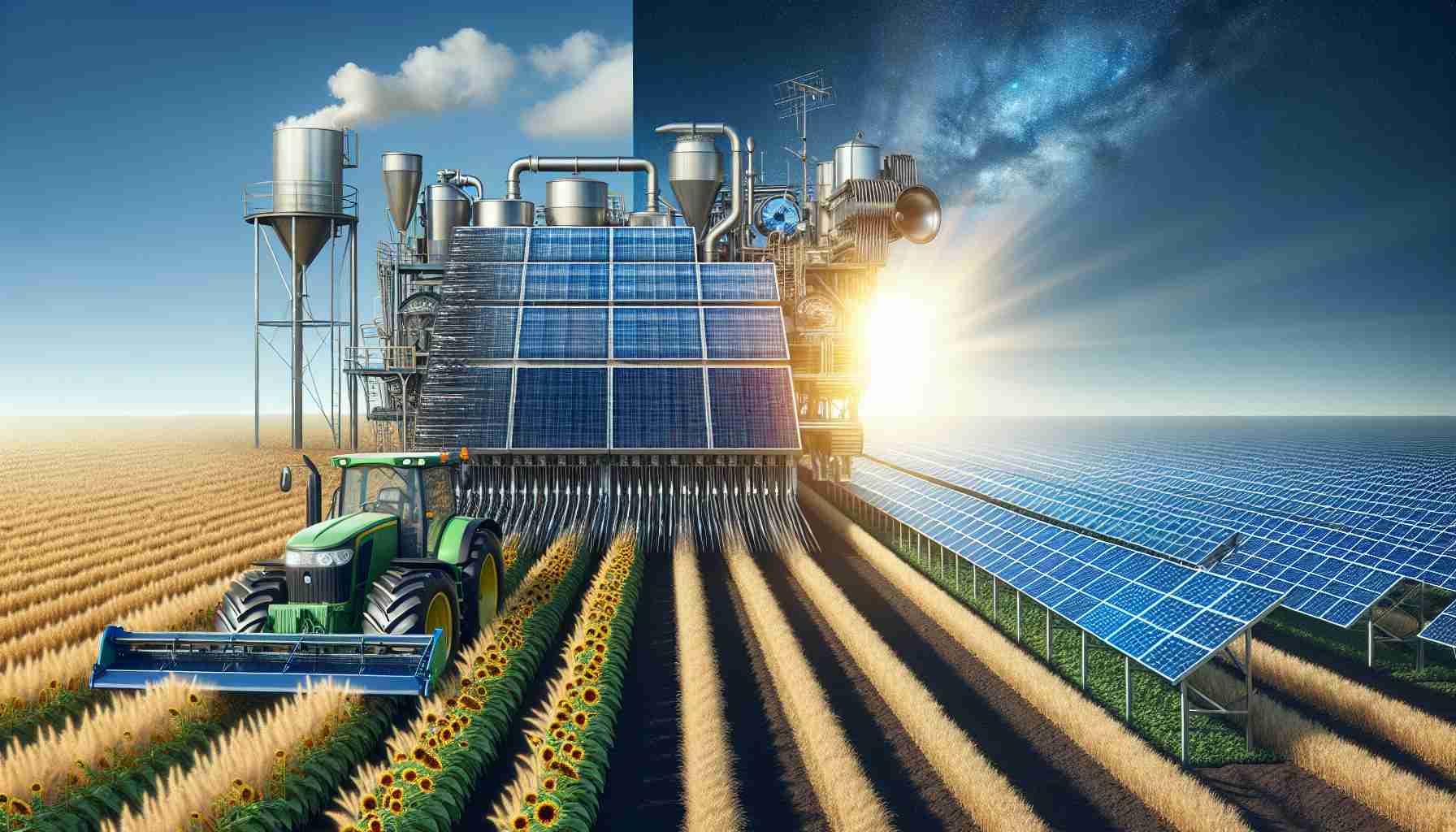The Struggle of a Virginia Family Farm
In Augusta County, Virginia, a family-owned farm has been a cherished legacy for 75 years. Maintaining this farm in today’s challenging economy is no small feat, as escalating costs and seasonal uncertainties threaten its future. Recently, the family explored an innovative avenue for financial stability by considering a solar energy project. This initiative promised to support the farm while generating critical income and preserving the land for upcoming generations.
The proposed development aimed to harness 150 megawatts of clean, renewable energy, potentially infusing $3.25 million into Augusta County’s local economy, benefiting schools and public services. Unfortunately, the county commission halted the project, raising concerns about agricultural land use.
Farming families deeply value the land and seek sustainable methods to maintain it. Solar power, unlike permanent structures that alter the landscape, offers a flexible solution. Once the panels are removed, the land could revert entirely to agriculture. For this family, solar represented a lifeline, ensuring the farm remained operational, rather than forcing them to sell portions to survive financially.
Virginia’s growing energy demands highlight the need for more renewable sources. The alternatives could compromise the state’s natural resources, making agricultural practices increasingly challenging. The family believes that local policies should foster opportunities rather than impose barriers, allowing them to thrive while contributing to their community. They advocate for a future where solar energy is a viable option for farmers aiming to preserve their heritage.
Future of Sustainable Farming and Energy Integration
The challenges faced by the Virginia family farm transcend mere agricultural concerns; they embody a larger narrative of sustainability and economic resilience in rural America. As farms grapple with rising operational costs, the integration of renewable energy into agricultural practices presents an opportunity to innovate and survive. According to the U.S. Department of Agriculture, over 90% of farmers believe adopting different forms of energy can enhance profitability. This sentiment reflects a paradigm shift toward more resilient agricultural ecosystems that prioritize both economic stability and environmental stewardship.
However, the friction between traditional land use and renewable energy development raises questions about future land management. While some policymakers view solar farms as a threat to agricultural land, others see them as a necessary evolution. Research reveals that integrating solar arrays into farming, known as agrivoltaics, can actually increase land productivity. This dual-use approach not only maintains agricultural integrity but also contributes to energy needs. By 2050, the U.S. aims to derive 50% of its electricity from renewables.
Moreover, local pushback against such developments must be contextualized against climate pressures. Climate change is increasingly challenging farming viability, prompting urgent calls for policies that support renewable initiatives. Ultimately, the struggle of Virginia’s family farm symbolizes a critical juncture in the dialogue between agriculture, energy production, and land conservation, paving the way for innovative and sustainable coexistence in the years to come.
Reviving Family Farms: Harnessing Solar Energy for Sustainable Agriculture
The Struggle of a Virginia Family Farm
In Augusta County, Virginia, a dedicated family farm has stood the test of time for 75 years. However, in today’s challenging economic climate, this cherished legacy faces significant hurdles. Rising operational costs and unpredictable seasonal changes threaten the viability of family farming. To combat these challenges, the family is exploring innovative solutions, prominently featuring a solar energy project aimed at providing financial stability while preserving their land for future generations.
The Solar Initiative
The planned solar project seeks to harness 150 megawatts of clean, renewable energy. This initiative has the potential to inject approximately $3.25 million into the local Augusta County economy, benefiting public services such as schools. However, despite its promising benefits, the county commission has expressed concerns regarding the use of agricultural land for solar installations, leading to the project’s halt.
Why Solar Makes Sense for Farmers
Farm families deeply understand the importance of sustainable land use. Compared to traditional agricultural structures, solar energy systems provide a flexible solution that does not permanently alter the landscape. When solar panels are removed, the land can revert back to its original agricultural use. This makes solar energy not only a viable option but a necessary one for farmers who wish to maintain operations without sacrificing their land.
Growing Energy Demands in Virginia
With Virginia experiencing a rise in energy demand, the necessity for renewable resources is more pressing than ever. Failing to adopt sustainable energy solutions could lead to environmental compromises, further complicating agricultural practices in the state. Farming families, like the one in Augusta County, are advocating for local policies that encourage renewable energy projects, paving a path towards a more resilient agricultural future.
The Wider Implications and Future Outlook
The struggle of this Virginia farm encapsulates a broader trend in agriculture. Farmers across the country are increasingly considering solar energy and other renewable sources as vital to their sustainability. This movement addresses several key factors:
– Economic Stability: With traditional farming income often volatile, diversifying revenue streams through solar power can help maintain financial health.
– Environmental Responsibility: Solar energy contributes to reducing carbon footprints and conserving natural resources, which is vital for sustainable farming practices.
– Preservation of Land: Using solar technology allows for the dual use of land, facilitating both agriculture and renewable energy production.
Conclusion
The familial ties to the land are immensely significant for farming families. The desire to maintain their heritage while adapting to modern challenges compels them to seek solutions like solar energy. As they navigate local policy hurdles, their quest represents a beacon of hope for many struggling farmers. By fostering a climate that values innovation and sustainability, Virginia could set a precedent for agricultural resilience, ensuring future generations can continue to thrive and nurture the land they cherish.
For more insights into solar energy’s impact on agriculture and sustainable farming practices, visit Solar United Neighbors.
